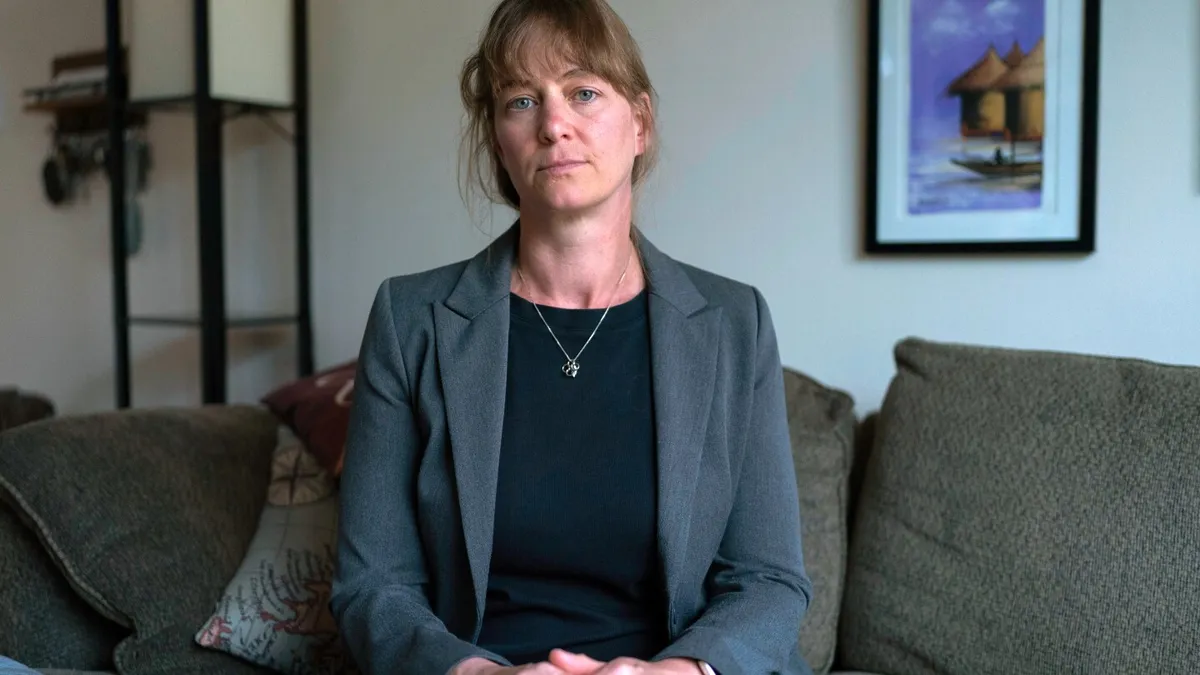
In a significant moment for the National Institutes of Health (NIH), Dr. Jay Bhattacharya, who is in the process of being confirmed as the new leader, has faced a formidable challenge from within the agency. During his confirmation hearings, Bhattacharya emphasized his commitment to scientific dissent, stating, “Dissent is the very essence of science.” However, this commitment is now being tested as numerous NIH scientists have come forward with serious concerns about the current administration's policies.
On Monday, a group of 92 NIH researchers, program directors, branch chiefs, and scientific review officers took a bold step by signing a letter titled the Bethesda Declaration. This letter serves as a direct challenge to the policies of the Trump administration, which they argue undermine the fundamental mission of the NIH, waste public resources, and jeopardize the health of Americans and people worldwide. The declaration boldly states, “We dissent,” highlighting the urgency of their message.
In a climate where many fear repercussions for voicing dissent, the signatories chose to put their careers on the line. An additional 250 colleagues expressed their support for the declaration, albeit anonymously. The four-page letter was sent not only to Bhattacharya but also to Health Secretary Robert F. Kennedy Jr. and various members of Congress who oversee the NIH. As of now, there has been no immediate response from the White House regarding this significant development.
The signers of the Bethesda Declaration have described an alarming “culture of fear and suppression” that they believe has been fostered by the Trump administration within the federal civil service. They voiced their concerns about a leadership that prioritizes political gain over public safety and responsible management of public resources. The declaration underscores the turmoil experienced at the NIH, detailing the abrupt termination of 2,100 research grants worth over $12 billion, along with the adverse impacts on human subjects involved in critical clinical trials.
One striking example cited in the declaration is the cessation of a NIH-supported study on multi-drug-resistant tuberculosis in Haiti, which forced researchers to halt antibiotic treatments mid-study. The letter criticizes the administration's actions, stating, “Ending a $5 million research study when it is 80% complete does not save $1 million; it wastes $4 million.” Such decisions have far-reaching consequences for public health and scientific advancement.
Among the signatories is Jenna Norton, who oversees health disparity research at the National Institute of Diabetes and Digestive and Kidney Diseases. Norton recently attended a forum where she discussed the troubling state of affairs at the NIH while masked to protect her identity. Now, she has removed her mask, clearly stating her position as a lead organizer of the Bethesda Declaration. “I want people to know how bad things are at NIH,” she told The Associated Press.
The Bethesda Declaration draws inspiration from Bhattacharya's own Great Barrington Declaration, which he co-authored in October 2020. That declaration brought together a group of epidemiologists and public health scientists who expressed their opposition to what they deemed excessive COVID-19 lockdown measures. “He is proud of his statement, and we are proud of ours,” said Sarah Kobrin, a branch chief at the NIH’s National Cancer Institute and a signer of the Bethesda Declaration.
As chief of the Health Systems and Interventions Research Branch, Kobrin has seen her work shift from advancing cancer care research to merely trying to prevent further damage due to the funding cuts. “So much of it is gone — my work,” she lamented. The 21-year NIH veteran emphasized her dissent stems from a desire not to participate in the political manipulation of biomedical science.
Ian Morgan, a postdoctoral fellow with the National Institute of General Medical Sciences, also signed the declaration, emphasizing the importance of basic science research in creating future cures. “We are doing the research that is going to create the cures of the future,” he stated. However, he warned that ongoing cuts to grants threaten the future of scientific innovation.
The Bethesda Declaration has garnered support from employees across all 27 NIH institutes and centers. Most signatories are heavily involved in evaluating and overseeing extramural research grants. The letter highlights that NIH trials are being halted without regard for participant safety, undermining commitments to those who contribute to scientific discovery.
The Trump administration's approach has affected public health research through various means, including efforts to eliminate diversity, equity, and inclusion initiatives from federal programs. The Bethesda Declaration points to indiscriminate grant terminations, payment freezes, and blanket holds on awards, regardless of scientific merit.
This declaration marks a pivotal moment for the NIH, representing the first cohesive effort to express discontent with its current direction. A dedicated Signal group was established for participants to navigate NIH discussions and support one another. The signers remind Bhattacharya of his commitment to academic freedom, hoping this principle will protect them as they challenge the administration.
As Norton poignantly stated, “I am so scared about doing this, but I am trying to be brave for my kids.” Her commitment to speaking out reflects the growing urgency among NIH scientists to advocate for the integrity of their research and the safety of their patients.